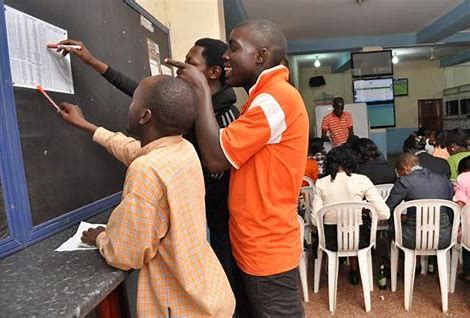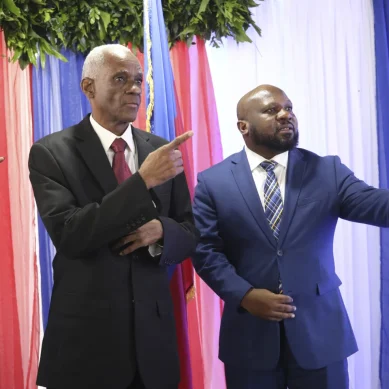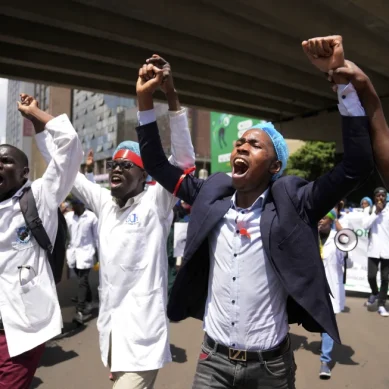
According to Wikipedia, the period between 20-and 30 years is the generation. If we take this to be the truth, then the President of Uganda, Tibuhaburwa Museveni, has ruled the country for a generation and more.
However, generation also means all the people of all ages living in this period. For the purposes of this article, I take the generation to cover 40 years; in this case, from 1982 to 2022.
The period 1982-2022 has been a period of wastage and loss – economically, financially, biologically, environmentally, professionally and in terms indigenous belonging and ownership of the country. Increasingly, indigenous Ugandans have lost their country and its economy, step by step, to foreign sojourners some of whom have lived in the country for a long time, have recently migrated into the country or were even born in the country and now claim complete ownership and belonging at the expense of the bona fide indigenes.
It is during this generation when immigrant Indians, for example have demanded to be included among the “indigenous groups of Uganda” and the president of Uganda has said he has no problem with that. It is also the generation when thousands of Chinese have flocked into the country – many illegally. However, unlike Indians, they have not demanded to be an indigenous group in Uganda. Indigenes are bitter.
The brief period between 1979 and 1986 was wasted away by a bush war in which Rwandese refugees were central and nearly 500 Ugandans in what was called the Luwero Triangle lost their lives. It was a period sociopolitical instability. Many young people died. Many others were recruited by the Patriotic Resistance Army (which was a morph of Yoweri Museveni’s Front for National Salvation) and National Resistance Army – a result of Yoweri Museveni’s Patriotic Resistance Army and Yusuf Lule’s Uganda Freedom Fighters between 1981 and 1986 as Kadogos (child soldiers) to supplant the juvenile Obote II regime from power.
No meaningful production and rehabilitation and reconstruction of the country took place. Many Ugandans fled the country to join those who had fled during the Amin era. Many of them have never to come back due persistent political instability and uncertainty.
A culture of militarism has since 1886 been deliberately established and popularised by the ruling NRM regime as integral component of an alien political culture sown and entrenched on the basis of hatred and blame of past leaders for crimes they never committed. The crimes were committed by those who removed them from power. Deceptively hatred and blame of past leaders have been sown in the minds of people born between 1980 and now in order to conceal the real people responsible for Uganda’s quagmire.
Most Ugandans born between 1980 and 2022 lack critical thinking and critical analysis skills. They read or write critically or debate issues coherently and effectively. In fact, they hate reading, especially long articles, documents and books. Yet they are in the bracket of our new breed of leaders in every sphere of life. They constitute our present teachers and lecturers. They hardly question anything. What the leader says or authors write is taken as gospel truth although they can question the Bible or the Quran. If there is anything useful going on in our churches, mosques, cabinet, legislature or judiciary, school or universities it is by accident.
Most of these institutions are now under the influence of young people born between 1980 and 2022 -this generation. Increasingly most are cadres of NRM who adore the Chairman and take him as the only thinker. They are just good at singing praises of the president or glorifying and worshipping him, or implementing his choices without contradiction. They only deal with simple things and avoid complex ones. They are victims of the conspiracy of silence and of fear which has be sown in the country by power.
Under fear they resist alternatives in their heads and in anything. It is fear that has destroyed a once vibrant intellectual climate in the country, which used to encourage questioning and challenging the choices of power. It is not surprising that all the country’s universities, including Makerere University, which used to be the bastion of intellectual activity, have relapsed into academicism, thereby letting down this and future generations.
Intellectual capital undermined and academic capital entrenched, yet intellectual capital is the mainstay of real things and academic capital is the mainstay of unreal things. Another word for academic is unreal. So, Uganda’s reality of today has squeezed intellectualism out and put academicism at its centre. It is a reality of conquest, consent, control and domination by power that was ushered in by a bush war in the early part of this generation.
I am not happy about my own six children born in this generation, although most of them have degrees, some with more than one degree. Only my daughter born in the very early 1970s is different. Although a scientist, she can effectively engage in critical thinking and critical analysis, question and sustain discussion of difficult subjects, explore diverse angles of an issue while keeping God at the centre of her life.
Of course, my six children are part and parcel of the generation I have described and to which the majority of Uganda’s young people belong. Unlike the young people of the 1960s, young graduates of today have knowledge but not enough wisdom, understanding and insights to effectively discuss and analyse issues critically. When they see someone engaged in critical thinking and analysis, they dismiss him as anti-government.
Or else, they go to discussion of non-issues or seek for simplicity which they handle effectively. Such generation will worship, glorify and praise power even if they have been to university class. They will see the lecturer or professor as a little god, just copy notes and memorise them to pass examinations and go away.
Of course, when they go away, they will forget most of what they memorized and find they have to unlearn and unlearn to fit in the reality outside university. Unfortunately, graduates are relearning to detrimental ends because vices such as corruption are their choices.
Ultimately, employment of the education enterprise is based on technical know-how, not professionalism. People who are employed on the basis of technical knowhow are constrained by lack of necessary skills. They have no capacity to implement anything professionally. This could explain why parliament is not satisfied wih the rate of implementation of its decisions by the Executive; why the quality of judicial decisions is falling meteorically; and why the quality of the civil service leaves a lot to be desired.
On the whole, discipline. Patience, tolerance and respect are not integral to the young people of this generation. They do not take easily to guidance and advice and get irritated when presented with alternatives. When they are more than 18 years of age, they can tell you that they are old enough to decide for themselves.
One young man of 27 whom my wife and I hired recently to stay at our farm and also help us at our homestead, told me, “Mzee, I am old enough and I have children and a wife. You don’t have to all the time tell me what to do or how to do it”.
I was not surprised. These days most young people in the age bracket of 6-40 years resist being guided. This young man does not fit to be my son but my grandchild. My last born is 32 and my first born is 51. Personally, I received a lot of knowledge, wisdom and guidance from my grandparents and always wanted to be by them to learn some new things.
These days if you offer advice or guidance to a young person, say about education, the child may report you to his or her parents, some fit to be your grandchildren or children. You will be lucky if the parents ignore your seniority and abuse you instead. One parent told me, “You advise your own children. Leave mine a one.” even when he knew that my last child at school, the 32-year-old one, was at A-level in 2009.
In my village Nawaka, in Ikumbya Subcounty of Luuka District in Busoga, I am currently the oldest of my generation, and I have the largest number of educated children, with two of them having more than one degree and one of the two a university lecturer, like I was for many years. However, I have been compelled to withdraw from inspiring the children of members of my village and clan to love education. I feel sorry for them but their parents don’t care. The children are a wasted and lost lot.
When I remember that many young men and women passed through my hands at primary, secondary and university levels, and many are serving society – at national, regional, continental and global in various capacities – I get extremely sad. I am, well-positioned and obliged to guide the young parents of my Clan and village about education, but they are not impressed and will not let me to. They prefer to do their things their way.
When you advise parents about the value of education, they dismiss you as proud because your children are educated. If Jesus said that a prophet will not be recognised in his place of birth, I have lived to experience it. The educated are not loved or imitated but hated, avoided and maligned. At worst they try as much as possible to lower you at their level or even below their level. You are lucky if every day they don’t connive to destroy your name as far and as widely as they can, as if that will remove the advantage of education you have.
One undoing of the educated of a village is that unlike their counterparts, they will feel lower compulsion to value extended family relationships, attend every burial or festivity or check on every sick person in the village or surrounding village. Time and energy seem to be limiting factors for the educated, although the educated that are politicians somehow find the time and energy.
For me I have the disadvantage that I spent almost 40 yeas from my village. I do not know most of the young people who now predominate my village and neighboring villages. It is unlike when I would know everyone in the village and neighbouring villages, and even beyond, and had the time and energy to visit them.
Villagers take long to perceive that times have changed and that the educated person among them also changed. If they knew him or her before the see him or her in the old sense, and frequently do not respect him or her. So, they are unlikely to respect whatever advice he or she tells them. Yet in the past, restraint, constraint and respect were a matter of holistic community education. That was in the past. It is different today.
The community does not teach the good and the bad – if you take the current children as a measure of progress in education. Constraint, restraint and respect have almost disappeared at least in my village.
Meanwhile, although in my father’s lineage we have tried to replicate the education success story in the Daudi Kintu Mutekanga lineage, it has become increasingly difficult as the cost of living rises supersonically.
Even then in Busoga, when people talk about education and educated people, they mention my Mulawa Clan, especially the Afunaduula Family. However, the Mutekanga lineage is by far superior because virtually all members of that lineage take education as a matter of life and death even if generally education in Busoga seems to be a thing of the past. If Daudi Kintu Mutekanga rose from the dead he would relax with satisfaction reflecting on the great work he did in educating his children.
Many grandchildren and great grandchildren of his have sought and got education at the highest level and are serving humanity in many parts of the world. I personally knew the late Prof Igaga Mutekanga, formally a professor at Kenyatta University in Kenya and Vice-Chancellor of Busoga University; and I know Prof David Bakibinga, formally Deputy Vice-Chancellor of Makerere University and Prof Emeritus Robert Bakibinga now a bureaucrat with the State of Pennsylvania, but formally a professor of engineering at Pennsylvania State University.
The lineage has accumulated some 12 PhDs so far and many other members are pursuing their PhDs. and masters degrees. The lineage is the pride of Busoga as far as education is concerned, but if other lineages of Basoga tried to emulate it, they are falling behind, this century, which is sad. Busoga was the pride of Uganda in education.
Behind every problem is the problem of leadership. Busoga leaders, if they are to revive education enterprise in Busoga, have to take leaf from the educational success story of the Daudi Kintu Mutekanga lineage. Education is the greatest challenge facing Busoga today although poverty has often been cited as the one.
The vast majority of my people of Mulawa Clan at Nawaka, Ikumbya Subcounty, Luuka District no longer care about education. I hear this attitude is now universal in the whole of Busoga region. Parents have left responsibility for education almost entirely to the central government’s Universal Primary Education (UPE) and Universal Secondary Education (USE). The school dropout rate at all levels of education in the village is extremely high. The only children getting education up to university level are principally those of the children of the members of the Charles Afunaduula lineage and Silas Wekiya lineage.
These lineages are experiencing extremely few school dropouts. Like the Daudi Kintu Mutekanga lineage members, the Members of the Charles Afunaduula and Silas Wekiya Lineages are educating their children despite the very unfavorable socioeconomic and environmental conditions in Uganda. They are agreed whatever the attempts to devalue education by emphasizing “Technical Know WHO” education is the key to several opportunities.
Therefore, if you educate your children, your children and grandchildren will also educate theirs. Unfortunately, this having educated people and uneducated people in society creates division, in a country where society is politically being divided into smaller and smaller units for the political gain of the rulers.
A plethora of threats face the children of my village in particular and Busoga in general. One serious threat – an expression of poverty of mind and income – is early marriages among school dropouts. Busoga is known for having the largest threat of teenage marriages in Uganda.
Among the educated the threat is different. Many don’t want to marry and, therefore, wean off from their parents even when they have come of age. This is dangerous because reproduction and renewability of genealogies of Basoga families and clans are endangered in the long-term. And as I stated in another article on Busoga, very few educated children of Busoga want to build homes in the region. Therefore, they are not contributing to the development of Busoga in physical terms. They are contributing to the development of those regions, towns or cities outside Busoga where they are building homes, if at all.
Because of reduced emphasis on education, conflict generation is on the rise within and between families in Busoga. Within families, school dropouts who are boys are violently demanding land from their fathers so that they can sell it to buy boda boda to ferry passengers or goods from one place to another or to start other businesses for survival. Where the parents refuse, some of the school dropouts have killed them or even committed suicide.
One young man, who may not be remembering what he told me, when I asked him what he was going to do now that he had dropped out of secondary school, did not mince with words: “I am waiting for my father to die, then I will sell some of the land, buy a motorcycle and go to Jinja or Kampala to do boda boda business”.
Indeed, the young man who is 23 is waiting but his 80-year-old father has shown no sign of dying. I hope the young man will not kill him when he becomes impatient. He is not the only one talking foolishly. Many young men have a similar mindset. If the NRM government took technical training seriously, and did not close technical schools en masse, most of these young people would be absorbed and equipped with technical schools they would use to support themselves and their families.
When we hear of increasing suicides among the young people, despondency and redundancy, accompanied by frustrations and shame (towards girls) could be the explanation. Government is not addressing the issue, preferring to concentrate on politics and to ostracise young people or characterise them as criminals. More and more prisons are being built to accommodate the young men, who are picked at will and accused of diverse crimes, including being idle and lazy. It is a social bomb waiting to happen.
Unfortunately, frequently government confronts it militarily as if the young people are enemies of the state. Many have lost their lives in what others have characterised as human rights violations. Non-governmental organisations (NGOs), which would have helped socially, have been incapacitated and restricted politically with stringent laws, such as the Political and Other Organization’s Law, and Terrorism Law, thereby working in and with fear or withdrawing altogether.
The youth crisis is being compounded by the fact that Uganda leads in having the fastest growing human population in the world. The youth numbers are rising, not falling, and burdening the shrinking, increasingly neglected segment of aging, old and elderly people.
Between families, young men deliberately develop conflicts over land, girls or women, even when they are still in the homes of their parents. Some may even fall in love with their step mothers or female spouses, thereby getting in direct conflict with their parents. The conflicts, which are on the rise, may be fatal. If you listen to new on Television or Radio you get the impression that the survival of the family institution in Uganda is in serious danger of disintegrating.
Some young people, for luck of genuine income sources, are turning themselves into political hangers-on, doing political work for politicians for some peanuts to survive on, however briefly. However, they may lose their lives as did happen in Luuka District during the 2021 Presidential campaigns.
Curious young people and innocent standbys who wanted to listen to presidential candidate Kyagulanyi Sssentamu were shot dead en masse, wounded or carried away to seclusion known as safe houses. Many have not been accounted for ever since.
Other despondent and redundant youths are turning to witchcraft or religion, not so much for spiritual development as for illusionary richness. They have fallen pray to prosperity preachers who promise them instant richness or visas to foreign countries. Still others are taking to illicit drugs to postpone responsibility, and many deceive themselves that when they take the drugs their problems are solved. Besides, many young girls have for luck of viable alternatives taken to prostitution even at ages as low as 12 years. Pathetic!
Many youths have fallen prey to the international modern slave racket, where they are promised money and illusionary riches in the Arab world. Some of them are graduates who have failed to get gainful employment after walking Kamapala streets for long. Increasingly, many have become victims of a related racket called “human organ trade” in which they lose their organs, especially their kidneys, that end up in the rich but sick people.
Many lose their kidneys through the work of criminal, unscrupulous medical personnel who want easy money at the expense poor and needy Ugandans. However, others willingly accept to have one of their kidneys removed in order to get money and ostensibly escape poverty. Pathetic!
The outflux of young people to foreign countries, or to towns and cities domestically, is leaving only old and elderly people who have expired energy-wise to do agriculture. This could be one reason why the government cannot effectively manage the national budget, and has to rely on incessant borrowing to even pay salaries for its workers. In the past when young people were active enough in agriculture, the economic sector supported the national budget heavily.
In particular, Busoga became so prosperous that it sustained a viable education system and even could lend money to Central Government and some foreign countries. Today, however, the youth are unproductive and only pretend to do agriculture to tap into the money bonanzas Government pumps in to a select group of usually partisan individual, ostensibly to pull the people out of poverty.
Many young people flock to market places, towns and cities to engage in betting, rumour-mongering or discussing football, politics, politicians or coming political duels. Usually, they are all the same, with no wise people among them to learn anything useful from. When it is a football season and political campaigns are over, the greatest activities the youth are engaged in are football betting, watching and discussing football, not agricultural production.
Many of the school dropouts hate animal husbandry, and poultry. In Busoga scores of young men are seen daily either on foot or bicycles, flocking to sugarcane plantation to provide cheap labour in sugarcane cutting, while others are atop lorries carrying sugarcane. Their job is to load sugar cane on the lorries and offload sugarcane from the lorries. They prefer doing that to working on family farms. Most of them have become unruly and some of them indeed engage in crimes such as robberies, murder and rape.
Last, but not least, so many young school dropouts are exposed to biological, social and sexual aberrations, principally homosexuality and lesbianism. These are harming communities, their families and themselves health-wise – mentally, psychologically and physically. Genetically and genealogically, they add no reproductive value to communities and families, since they end up being a wastage and loss These sociobiological aberrations have always been in society hideously, but these days they are popularised as human rights issues, which is anti-Christ.
As long as our generation continues to be wasted and lost, these aberrations will continue to be entrenched and even institutionalized or legalised in Uganda in particular and Africa in general because of mind poverty and income poverty.
However, God will continue to abhor the aberrations as social evils of the type that led him to destroy Sodom and Gomorrah.
For God and My Country
- A Tell report / By Prof Oweyegha-Afunaduula, a former professor in the Department of Environmental Sciences of the Makerere University, Uganda











